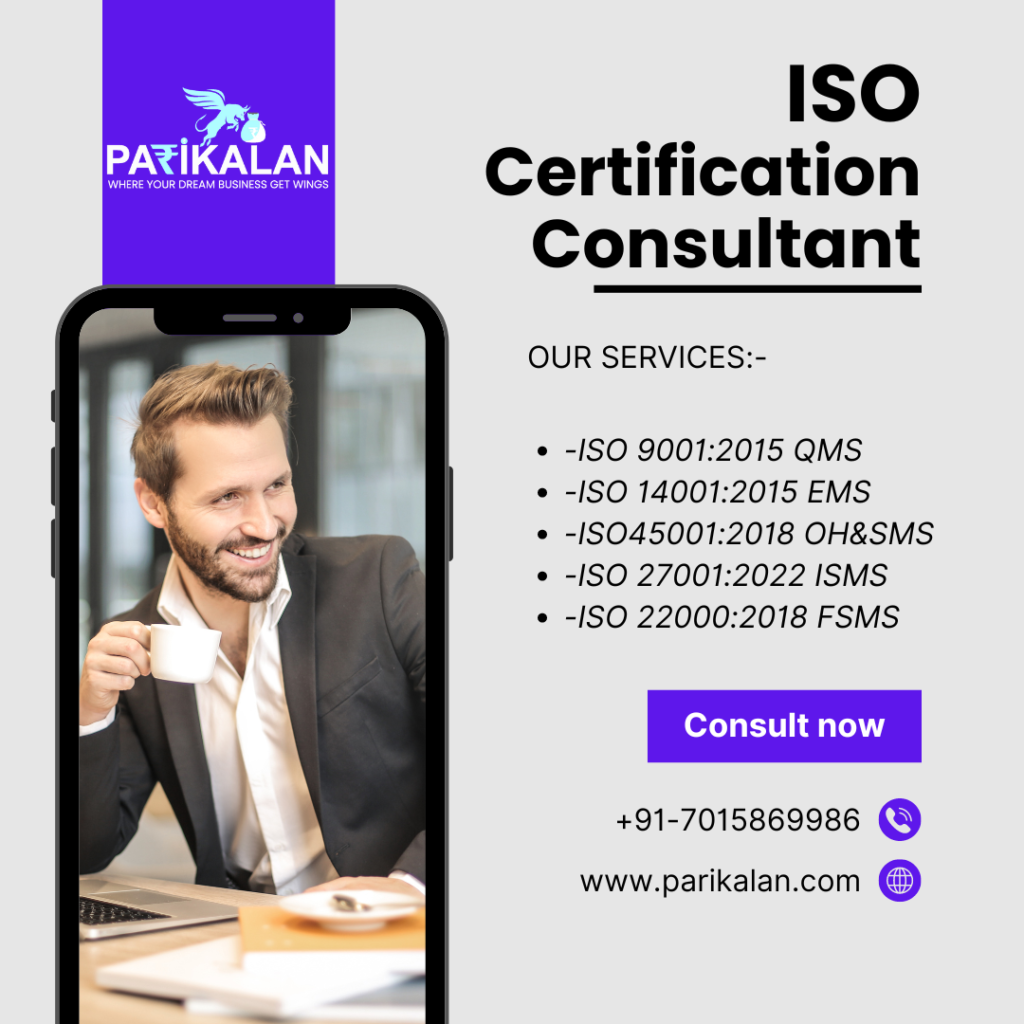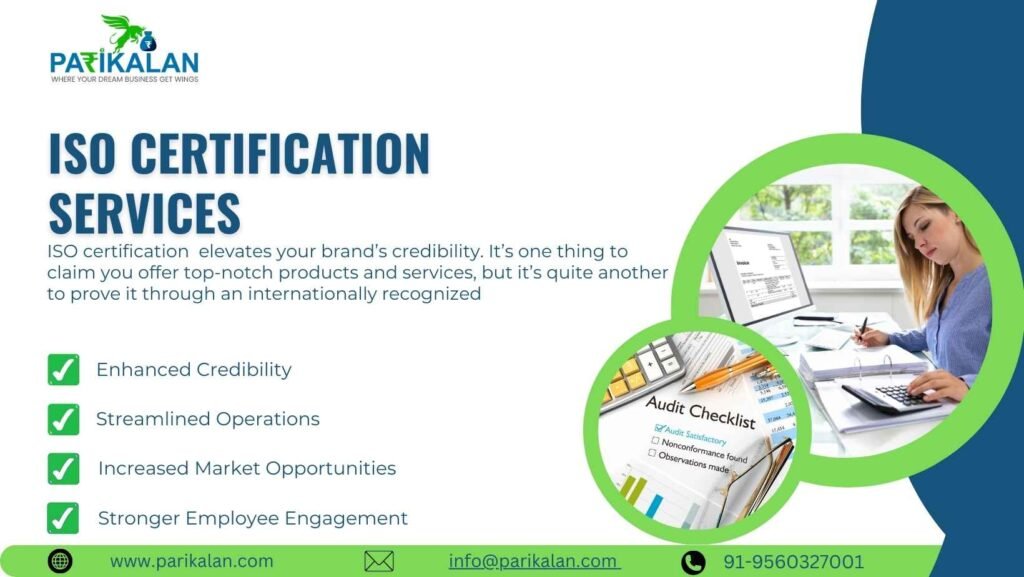How ISO 9001 Certification Ensures Superior Food Safety and Quality
Food production is an important economic foundation in India and highlights the country’s agricultural and food diversity. It’s a major contributor to India’s GDP as well as employment and exports and makes India one of the biggest food producers. It is a broad range of sectors, including packaging, agriculture processing food items, as well as distribution. The business is crucial for domestic consumption as well as international trade. Due to rapid urbanization, growing earnings, and evolving consumer tastes, this market is projected to grow to $535 billion in 2025. Future prospects for India’s agriculture sector is bright due to the advancement of technology.
Get Business Development Kit
Major Segments of the Food Industry
- Agriculture
Important crops include wheat, rice pulses, fruits and vegetables.
- Food Processing
This includes processing fruits and vegetables, poultry and meat, dairy and marine products.
- Packaged Foods
There is a growth in ready-to-eat food items, snacks, and frozen food items.
- Beverages
It includes coffee, tea soft drinks, tea, and alcohol-based drinks.

Importance of Food Safety and Quality in the Food Industry
Food quality and safety is essential to protecting public health, earning consumer trust, and meeting legal requirements. Food safety helps prevent people from getting sick from contaminated food products while excellent quality items make customers satisfied while building brand recognition. Businesses exporting their products should adhere to international food safety standards strictly – maintaining high standards of food quality and safety is the cornerstone of long-term business success and compliance with legal requirements – safe food keeps everyone healthy while helping businesses flourish and compete effectively in the market.
Are You Looking To Enhance Your Business Credibility And Quality Standards ?
ISO 9001 Certification and its Relevance to the Food Industry
ISO 9001 is an international quality management standard (QMS). It sets guidelines to ensure product consistency, customer service excellence and continuous improvement. In food processing industries, ISO 9001 provides an organized framework to ensure compliance with safety and quality standards and streamline processes while decreasing errors and increasing effectiveness. ISO 9001 certification shows a company is dedicated to maintaining high standards and encourages employees to do their best work. ISO 22000 helps food producers build trust among customers and stakeholders while meeting legal requirements while increasing market competitiveness.
Combine ISO 9001 with Food Safety Management Systems (FSMS), and keeping food safe becomes even easier and consistent. ISO 9001 is designed to keep customers satisfied while always improving and meeting other goals aligned with FSMS certifications – together, these ensure food is both safe and high-quality – benefiting both the company and its customers alike.
Conformity to ISO 22000 and HACCP Standards
ISO 22000 and HACCP (Hazard Analysis and Critical Control Points) are decisive for addressing the dangers of food safety. ISO 22000 provides a comprehensive method for an FSMS that incorporates HACCP guidelines and falls by ISO 9001’s structure for quality control. This ensures consistency in regulating food safety hazards from the farm to the fork. Incorporating ISO 22000 alongside ISO 9001 provides a framework that protects quality and safety using rigorous controls.This combined approach streamlines operations, ensures compliance with laws, and makes the company more cost-efficient in the market.
Documents Required for Applying ISO 9001 Certification

Company / Service Govt. Registration Proof

Valid Letter Head including Address

Quality Manual

Internal Audit/MRM
Key Benefits of ISO 9001 Certification for Food Businesses
-Food companies that achieve ISO 9001 certification can reap numerous advantages.
-The certification helps companies comply with all regulatory requirements, enhance efficiency, and raise product quality.
-Furthermore, certification assists in streamlining processes while decreasing errors and waste production and helping ensure consistency in output products.
– Certification helps build consumer trust and ensure customer satisfaction, demonstrates commitment to quality improvement, and opens new markets through meeting international standards.
-ISO 9001 certification fosters an atmosphere of accountability and active risk management, which leads to enhanced decision-making, reduced operational risks and ultimately, enhanced brand image.
Role of Consultancy Services' in ISO Certification
Consultancy services are essential in helping businesses obtain ISO 9001 and 22000 certifications, particularly food safety certifications. Consultants assist in establishing the documentation and administration, educate employees, and establish an effective Food Safety Management System (FSMS).
Parikalan Consultancy OPC Pvt. Ltd. provides various online services to help you achieve ISO certification. The services include online consultations, e-documentation assistance, training courses, and remote audits. These services make certification easy and efficient, assisting companies to attain and maintain their high standards of food safety and quality.


